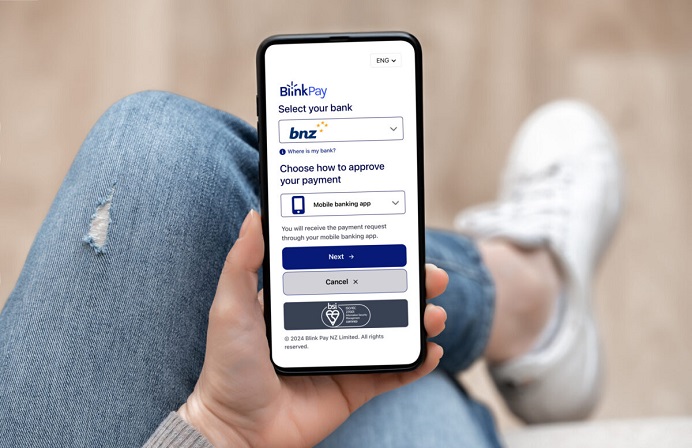
The growing presence of fintechs and online international money transfer (IMT) services has put pressure on traditional players to substantially reduce their fees, and in many cases, improve their service offerings; however, Australian consumers are still missing out potentially hundreds of millions in savings by not “shopping around”, according to a new report by the competition and consumer watchdog, the ACCC.
“The entry of new fintech suppliers has significantly altered the competitive landscape for IMTs,” the ACCC wrote in its newly released Transparency and Competition in International Money Transfer Services report.
“These new players appear to have attracted customers by offering lower prices and in some cases better service features than the big banks. In response, the major banks have, in recent years, been seemingly compelled to lower their prices.”
For instance, the average cost to transfer AU$250 IMT from Australia to the United States decreased by nearly half in the last five years – from 6.35 per cent in 2019 to 3.66 per cent in 2024.
For the transfer of AU$10,000 IMT to the US, fees, on average, have decreased by 0.68 percentage points across seven large suppliers.
However, the banks’ fees, which range from just over two per cent to over six per cent of the total dollar amount sent, remain significantly above those of the surveyed fintechs, whose fees remain below 1 per cent (and in some cases below 0.5 per cent).
In dollar terms, the report found that consumers who in February 2024 used the most expensive bank to transfer AU$10,000 worth of US dollars, could have saved more than $400 if they chose the cheapest IMT supplier in the ACCC’s sample.
The ACCC said it has been tracking developments in the IMT market since its 2019 Inquiry into foreign currency conversion services.
“Fintechs still continue to drive competition in the market and typically offer cheaper prices than the big four banks,” the ACCC wrote in its report.
“The big four banks appear to have responded by, in many cases, removing or reducing flat fees on IMT transfers.
Yet, despite the price drops from the big fours since the 2019 Inquiry, the ACCC notes that they remain higher than many of their rivals, and in particular the fintechs.
Data from the competition watchdog shows that fintechs have benefited from their competitive advantage in IMTs and, as a result, have continued to snatch market share from the once dominant big fours.
The big four banks, once the dominant players in the space with a nearly 80 per cent share of the market in 2016 (based on the total value of IMTs per month), now take less than a 40 per cent share (as of January 2024).
Fintechs, who in 2016 took less than five per cent market share, now dominate the sector, capturing 45 per cent of the market. Traditional IMT players, like Western Union, make up the remaining share.
However, the ACCC noted that the fintechs’ rapid increase in market share may not necessarily be the result of a tide of consumers switching away from the big banks, but rather from the growth of the overall IMT market.
“While there may have been some switching, the big four banks’ total IMT volumes have remained relatively steady. Banks continue to dominate the market for larger IMTs of greater than $40,000 that are likely predominantly business or wholesale transactions.”
However, as the watchdog noted, average IMT costs in Australia remain above G20 targets: that is, one per cent for transfers made to advanced economies (the UK, US, EU, for example), and no more than three per cent for remittances to emerging market economies by 2030.
As well, the G20 roadmap also sets a transfer speed target of 75 per cent of IMTs in every corridor to provide availability of funds for the recipient within one hour of payment initiation, and for the remainder of the market to be within one business day by end-2027.
Transaction speed was an important factor in consumers’ choice of IMT service.
“The ACCC’s consumer research also found speed of transfer to be a popular feature with consumers, with 47 per cent of survey respondents indicating they would pay more for faster transfers.”
The ACCC said it can take at least some credit for the overall reduction in IMT transaction costs in Australia, which it argues may also been pushed downwards by its 2019 Inquiry as well as its subsequent advocacy work, including its Best Practice Guidance [pdf].
This Guidance, it said, is aimed at “[improving] industry practice to help consumers compare the cost of IMTs across suppliers and more easily understand how much money recipients will receive”.
“By 2022, the ACCC had found all the 15 major IMT suppliers previously reviewed were fully adhering to the Best Practice Guidance.
“Compared to the movement in global IMT costs, Australia has seen a larger decrease in recent years, and has moved below the global average for both US$200 and US$500 equivalents.”
ACCC to amend, consult industry on IMT Best Practice guide
Following an ACCC-led consumer survey, conducted in conjunction with the Government’s Behavioural Economics Team (BETA) – which sought to better understand consumers’ experiences using IMT services and particularly online FX calculators – the consumer watchdog has proposed amendments to its voluntary Best Practice Guidance.
This, ACCC chair Gina Cass-Gottlieb said, “would help provide further transparency to consumers so they can better compare IMT suppliers’ online FX calculators”.
Based on feedback from its research, the ACCC has proposed to amend this Guidance for IMT service suppliers.
Among its recommendations are that suppliers:
- deduct fees from the amount inserted. This includes both in the FX calculator and in the backend of transactions to ensure consumers are not being misled in how transactions are processed or the amounts that will be received
- show in a prominent position, the estimated time a transfer will take to reach its destination. This should be as accurate as possible and relevant for every corridor the supplier offers
- provide their customers the ability to track the status of their payment.
While remaining voluntary, the watchdog stressed that it “strongly encourages all IMT suppliers to implement the recommendations”.
“The ACCC will continue its advocacy in this matter and will follow up with industry and government if there is non-adherence. If non-adherence is persistent, a mandatory code could be considered by government.
Industry embrace of the Best Practice Guidance could assist price-sensitive consumers in finding the best deal, saving them collectively upwards of $200 million.
The ACCC notes that, based on its consumer survey, 42 per cent of consumers who most often use a bank would consider sending money overseas with a non-bank.
“This cohort could equate to approximately 4.7 million transactions per year moving to the lowest cost provider.
“Based on the average transaction of $3,138 for a big four bank transfer, these consumers could each save approximately $108 per transaction.”
“Over a year, this change in the Best Practice Guidance could unlock $214.1 million in savings just for Australians who are willing to switch away from a big four bank to a low-cost provider.”
The ACCC said it is now seeking feedback from IMT suppliers on those proposed changes.
Submissions to the amendments are due by 21 August 2024.





